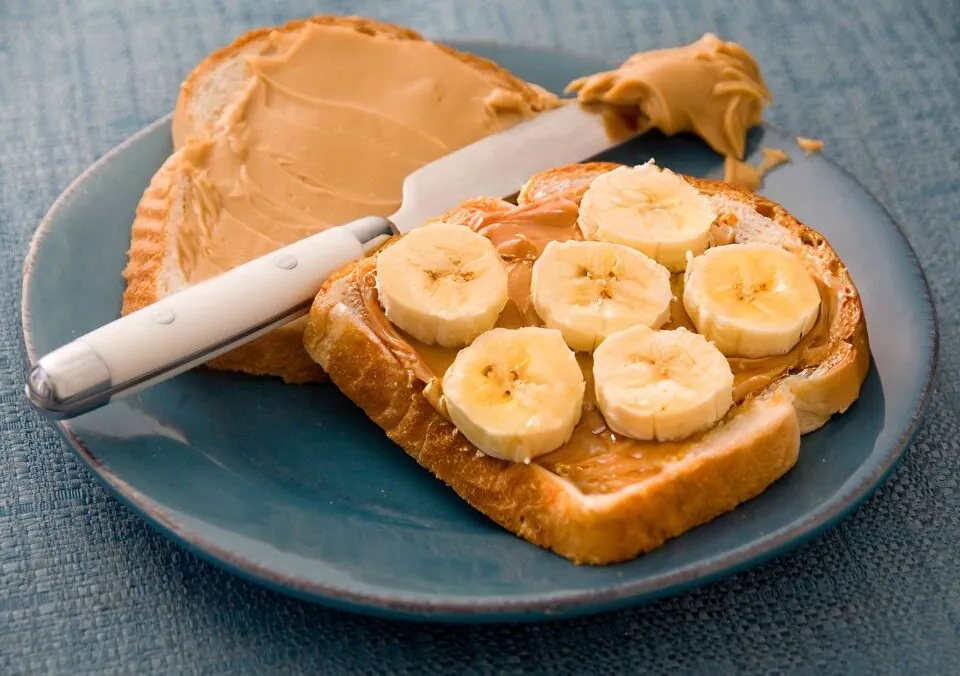Blog
Fueling Up Right: What to Eat Before a Workout

After years of evening gym sessions after work, long runs under the desert sun, and hiking Arizona’s rugged trails, I’ve realized something that changed the game for my fitness: your workout doesn’t start when you hit the gym—it begins in your kitchen. After a long day at work, refueling and hitting the gym can be one of the most powerful ways to reset your mood, shake off stress, and end your day with purpose and intention.
Think of your body like a high-performance vehicle. You wouldn’t hit the road on an empty tank; the same goes for movement. Whether lifting, running, or flowing through yoga, what you eat beforehand plays a major role in your performance.
A proper pre-workout meal isn’t about volume—it’s about strategy. You want to give your body just enough of the right nutrients to perform at its best. That means complex carbohydrates for sustained energy, protein to prime your muscles, and minimal fat or fiber to avoid mid-squat digestive drama.
It’s also about creating consistency. When you fuel your body well before exercise, you train your system to expect performance. Your metabolism revs up, your energy becomes more predictable, and your body associates movement with nourishment. Over time, these habits compound. Instead of relying on motivation, you’re running on routine, and that routine begins with smart pre-workout choices.
As Healthline notes, “To maximize the results of your training and avoid unnecessary fatigue, it’s important to fuel your body with the right nutrients before a workout.” They recommend a balanced approach: eat a meal rich in carbohydrates, moderate in protein, and low in fat 2 to 3 hours before you train. If you’re short on time, a smaller snack with quick-digesting carbs and protein 30 to 60 minutes out can still help power you through your session.
Timing is Everything
Your body needs time to digest and absorb nutrients before exercise. That’s why the sweet spot for eating is 1 to 3 hours before your workout. Eat too close to go-time and you might feel bloated or sluggish. Wait too long and you risk running on fumes. Pay attention to your body, everyone digests a little differently.
I’ve found that eating about 90 minutes before a workout gives me just the right mix of energy and comfort. A light meal with local ingredients—like citrus, dates, or eggs—keeps me fueled without feeling heavy. It’s all about finding the rhythm that works best for you.
A quick note on early workouts: if you’re rolling out of bed and heading straight to the gym, you may not have time for a full meal. Aim for something small and carb-rich like half a banana with a spoonful of peanut butter or a few dates. It’s not about feeling full but about turning the engine on with the right fuel.
Powering Up with Arizona-Grown Ingredients
Living in Arizona, we’re lucky to be surrounded by nutrient-rich local foods that support an active lifestyle. Sweet potatoes offer long-lasting energy. Citrus fruits hydrate and refresh. Dates pack a powerful punch of natural sugars and potassium. Eggs bring high-quality protein to the table. These aren’t just healthy options, they’re grown by our neighbors and rooted in our soil.
Here are some of my go-to pre-workout meals that blend local flavor with functional fuel:
- Sweet Potato Toast with Avocado and Egg → Complex carbs, protein, and healthy fat—simple and satisfying.
- Greek Yogurt with Arizona Citrus and Raw Honey → Light, hydrating, and easy on the stomach.
- Oats with Dates, Cinnamon, and Almond Milk → A slow-burning energy source with natural sweetness.
- Whole Grain Toast with Banana, Peanut Butter & Honey → A classic trio for a quick energy boost.
- Green Smoothie with Spinach, Banana, and Fresh OJ → Nutrient-packed and refreshingly light.
If you’re eating closer to your workout, 45 minutes before, try a liquid option like a smoothie or a protein shake with blended fruit. Liquids digest faster and are less likely to leave you feeling weighed down.

Caffeine: The Pre-Workout Power-Up
Caffeine is the most trusted wingman in fitness when it comes to boosting performance. Whether a strong cup of cold brew from a local Arizona café or a clean energy drink, caffeine can help you push harder, last longer, and stay mentally dialed in. It stimulates the central nervous system, reducing perceived exertion and delaying fatigue.
The sweet spot? About 30–60 minutes before your workout. Aim for 100–300 mg, depending on your tolerance—roughly 1 to 2 cups of coffee. If you’re working out later in the day, monitor your intake to avoid sleep disruptions that can interfere with recovery.
Pre-Workout Supplements: What Works
Walk into any supplement shop and see rows of flashy powders promising energy and endurance. But not all pre-workouts are created equal. Most traditional blends contain ingredients like:
- Beta-Alanine: Buffers lactic acid to reduce fatigue. It can cause a harmless tingling sensation.
- Citrulline Malate: Supports nitric oxide production for better blood flow.
- Tyrosine or Theanine: Enhance focus and mood.
Are you already using caffeine as your pre-workout boost? Great—you may not need more. Choose products with transparent labels and minimal added sugars—bonus points for supporting Arizona-based brands that prioritize quality and third-party testing.
It’s also worth experimenting on less intense days. If you’re trying a new supplement, use a lighter workout to see how your body reacts. Everyone processes ingredients differently, and what gives one person a boost might leave another feeling off.
Creatine: The Strength Builder
If one supplement has earned its place in nearly every serious athlete’s routine, it’s creatine. Backed by decades of research, creatine is safe, effective, and simple. It helps your muscles recycle energy faster by replenishing ATP, which gives you extra power during explosive efforts.
Over time, consistent creatine use (3–5 grams daily) can lead to increased strength, power, muscle growth, and faster recovery. You can take it pre- or post-workout. Look for creatine monohydrate, the gold standard. And despite old myths, creatine is safe when taken as directed.
Many athletes pair creatine with a carb source, like fruit juice or oats, to enhance absorption. Mixing creatine is an easy way to stay consistent if you already consume a pre-workout meal or shake.
Other Helpful Pre-Workout Aids
If stimulants aren’t your thing, or you’re training early, here are a few other performance-friendly options:
- Electrolyte Tablets or Powders: Great for Arizona heat or high-sweat sessions.
- Beetroot Powder or Juice: Enhances oxygen delivery and endurance.
- Adaptogens (Rhodiola, Ashwagandha): Help your body handle stress and support stamina.
- Carb-Based Fuel: Quick-digesting carbs like bananas or dates provide fast, clean energy.
Experimenting these options during training, not competition, can help you find your ideal blend. The key is consistency and comfort, whether a scoop of beet powder in your smoothie or a few dates in your gym bag.
Priming Your Mind: The Ritual Before the Rep
You’ve planned your meals, hydrated properly, and fine-tuned your supplement stack—but even the best physical preparation needs to be paired with mental readiness. The transition from nutrition to movement isn’t just about what’s in your body and where your head is.
Mental fuel is just as important as physical fuel. Creating a pre-workout ritual can shift you from distracted to dialed in. Take two to five minutes to breathe deeply, visualize your workout, or repeat a grounding phrase like “I train with purpose.” This small investment of time sharpens your focus and primes your nervous system for action.
Some athletes close their eyes and walk through their workout mentally, visualizing each set or run interval before they begin. Others take a few quiet moments to journal, stretch with intention, or sit in silence to shake off the noise of the day. The point isn’t how you do it—it’s that you do it. Your pre-workout mindset sets the tone. When you show up clear, grounded, and focused, every rep becomes more intentional, and your session becomes more than just movement—it becomes progress with purpose.
The Power of Music
Music can elevate your workout by syncing your body with rhythm. Songs in the 120–140 bpm range are ideal for cardio or strength work. Music also reduces the perception of fatigue, helping you push through that final stretch. Don’t underestimate the power of the right playlist.
Try curating different playlists for different moods—one for strength training, one for endurance days, and one for those early mornings when you need an extra mental push.
What to Avoid Before a Workout
Just as important as what you do before a workout is what you don’t:
- Heavy, high-fat meals that slow digestion
- High-fiber foods like beans or raw vegetables
- New foods or supplements you haven’t tested
- Excessive caffeine that causes jitters or dehydration
Stick with what works and save the experimenting for lower-stakes days.
Don’t Forget to Hydrate
Hydration isn’t optional in Arizona’s dry, sun-soaked climate, it’s essential. Even mild dehydration can reduce coordination, endurance, and mental clarity. That’s why hydration should begin hours before your session.
- 2 hours before: Drink 16–20 oz. of water
- 20 minutes before: Sip another 8–10 oz.
Want to level it up? Try Arizona-inspired hydration: cucumber-citrus water, prickly pear juice, or a homemade citrus electrolyte drink with sea salt and honey. These natural options hydrate while delivering vitamins and flavor.
Other great pre-workout hydration options include (and most of them are zero-calorie, so you’re not drinking your calories when you don’t need to):
- Coconut Water: Naturally rich in potassium and a great base for DIY sports drinks.
- Watermelon Juice: Refreshing and loaded with hydration-supporting nutrients like magnesium and citrulline.
- Chia Fresca: A mix of water, lime juice, and chia seeds—a natural electrolyte booster with added fiber.
- Herbal Iced Teas: Chilled Hibiscus or peppermint teas are caffeine-free and packed with antioxidants.
- Flavored Mineral Water: A great low-calorie way to mix sodium and bubbles to keep things interesting.
Bonus tip: If you’re wearing a heavy sweater or doing high-intensity training, weigh yourself before and after your workout. For every pound lost through sweat, aim to drink 20–24 oz. of water post-workout to rehydrate fully. Or, if you’re doing high-intensity training, weigh yourself before and after your workout. For every pound lost through sweat, aim to drink 20–24 oz. of water post-workout to rehydrate fully.
Your Pre-Workout Success Checklist
✅ Ate a balanced meal 1–3 hours prior
✅ Drank at least 16–20 oz. of water 2 hours before
✅ Sipped an additional 8–10 oz. 20 minutes before training
✅ Took a moment to clear your head or repeat a power phrase
✅ Started your pump-up playlist or grounding ritual
✅ Supplemented (if needed) with caffeine, creatine, or electrolytes
✅ Avoided heavy fats, too much fiber, or unfamiliar foods
✅ Completed your dynamic warm-up and mobility drills
Final Thoughts
If you want to crush your workout, don’t skip the pre-game. Arizona gives us everything—from sweet potatoes to citrus to locally roasted coffee. Fueling with intention means showing up with energy, focus, and purpose. Whether you’re heading out for a hike, a lift, or a round of pickleball, take the time to prepare your body and mind. Your performance will thank you.
Consistency is key. The more dialed-in your routine becomes, the more predictable your energy and performance will be. Over time, this leads to real progress.
By Joel Carr, Strategic Communication Manager, Arizona Farm Bureau


















